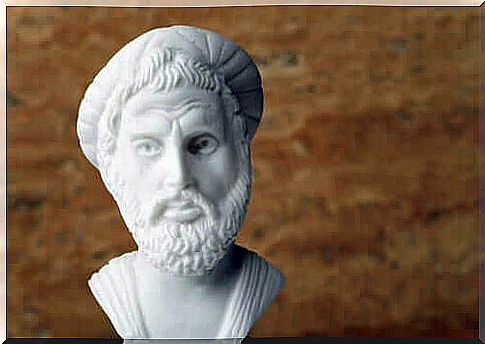Pythagoras, Biography Of The First Mathematician

Pythagoras, like other great geniuses in history, was a deeply rational man and, at the same time, fascinated by mysticism and animated by strange ideas. His biography is therefore further proof that madness and genius literally interpenetrate.
Reconstructing the biography of the first mathematician in history is rather difficult. What is known about him has come to us through his followers: the first writings on his life date back to at least 150 years after his death and present many contradictions.
Pythagoras himself was a rather reserved man, founder and member of a school, precisely the School of Pythagoras, extremely hermetic. In addition to mathematics, the members of his school were interested in esotericism and mysticism.
In other words, the Pythagoreans followed a kind of impenetrable religious cult. Therefore, they did not want anyone to get involved in their business.
Biography of a genius
From the information we have available, we know that Pythagoras was born in Greece, on the island of Samos, probably in 569 BC. Apparently, he was the son of a merchant and used to accompany his father on many of his travels. We also know that he received an excellent education, which included poetry and the study of the lyre.
His greatest teachers were Thales of Miletus and Anaximander. It seems that Pythagoras began to have contact with them when he was between 18 and 20, and was extremely impressed with their knowledge of mathematics and cosmology. Thales advised him to go to Egypt to venture into the wonderful world of numbers.
Everything seems to indicate that Pythagoras traveled for several years. Listening to his master, he went to Egypt, but also to Phenicia, Babylon, Arabia and who knows how many other places. It seems that he was imprisoned in Babylon and that here he came into contact with a sect of magicians of the time.
It is not known how, but he was released. Later, he went to Crotone, in southern Italy. There, he founded his School, which had over 300 members in its prime.
The life of Pythagoras in Crotone
Contact with magic, esotericism, astrology and demonology changed Pythagoras life forever. The Pythagoreans practiced the religion of mystery, or the cult of mystery. Staying true to his beliefs, the mathematician lived for a long time in a secret cave, where he devoted himself to his studies.
In Crotone he founded the Pythagorean School, but it was more a sect than anything else. Becoming a part of it was extremely difficult, you had to go through a series of initiation rites. Pythagoras imposed rigid and severe customs: the most important members lived together; others only had the privilege of attending meetings and listening.
The Pythagoreans did not eat meat, did not wear garments that had been made from animal skins, and practiced asceticism. Furthermore, they kept their activities absolutely secret, deplored democracy and devoted themselves to the study of cosmology, mathematics and the arts of mystery.
They also believed in metempsychosis, according to which the psychic elements of a dead person pass to another body after death. It is a variant of the theories of reincarnation, also known as “transmigration of souls”.
Hence the importance of not eating animal meat or wearing clothes made from their skin. The soul would seek another body to inhabit after death in order to be free. For this reason the Pythagoreans followed a series of very specific ethical guidelines and norms.

Death of Pythagoras
There are many doubts about the death of Pythagoras. The widely accepted version is that, in opposing democracy, his school was severely attacked by supporters of this political model. The attackers set fire to the School and the philosopher was forced to flee.
It seems that, while fleeing, he came across a field of beans, a vegetable towards which he felt a profound aversion and phobia. It was there that he was caught and assassinated.
It is not known exactly what Pythagoras’ specific contributions to mathematics were. Knowledge was collectively constructed in his school (or cult), so the authorship of his contributions is questionable. However, it is certain that his school created the foundations of arithmetic, geometry and mathematics.
The Pythagoreans also made important advances in the field of music, many of which remain in effect. They have also enriched the knowledge we have of astronomy. Pythagoras said that the sun was a dangerous sphere and that the universe revolved around it. It also represented the Earth as a sphere.
The Pythagoreans had a sort of cult for the number 10, considered the number that expresses wholeness. Pythagoras said that the animals spoke to him and that he could control them with his voice. He also said he could write on the face of the moon. He is believed to have killed a man for postulating and proving the existence of irrational numbers.
His life remains a mystery today, the authorship of some of his contributions is doubtful, but we know with certainty that he was one of the most transcendental and important philosophers and mathematicians in history.
Even today, centuries and centuries later, we continue to study Pythagoras and his peculiar school, because many of his discoveries are still valid. Magic and rationality, spirituality and science: Pythagoras and his school made great strides in each of these disciplines.








